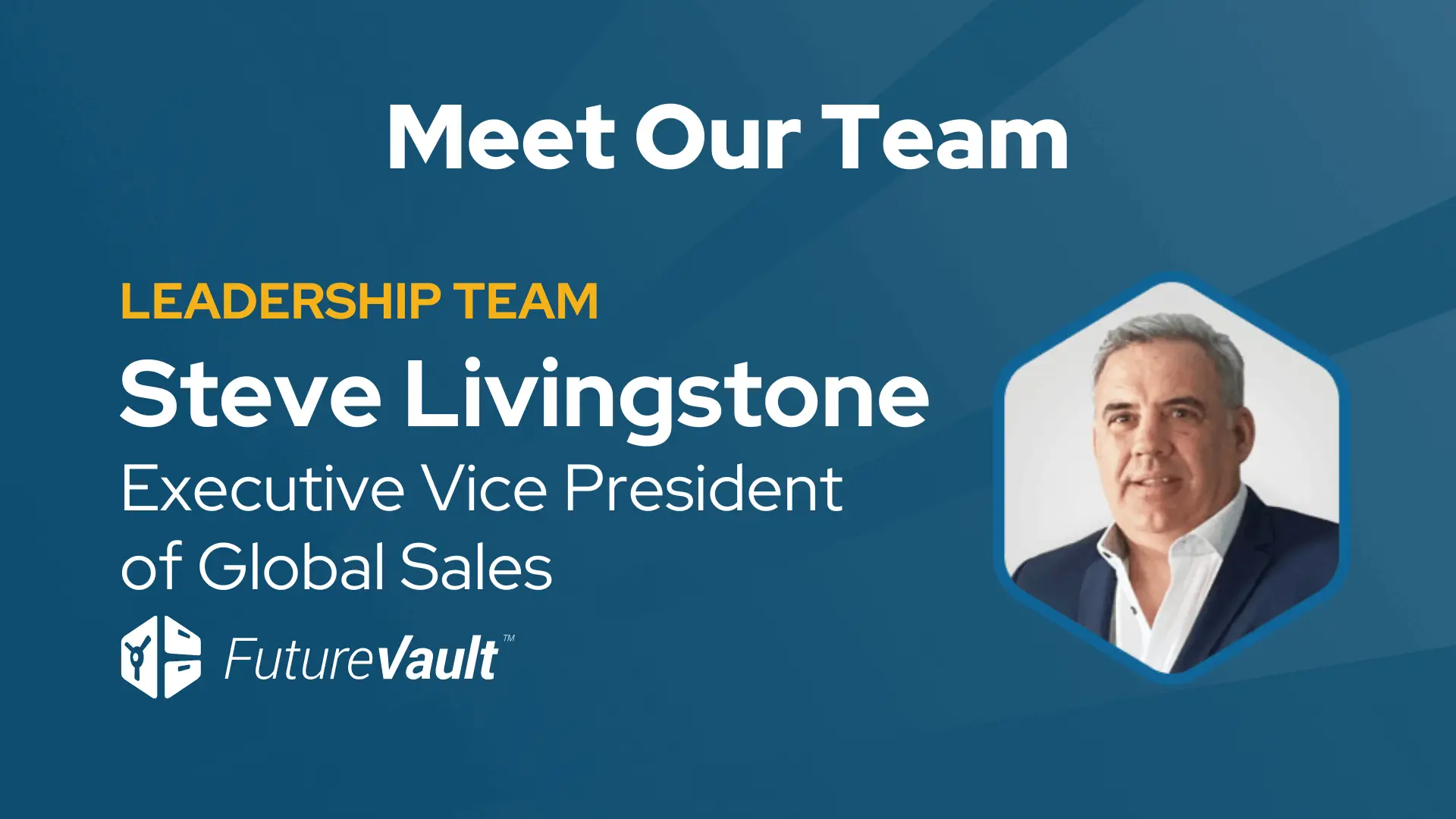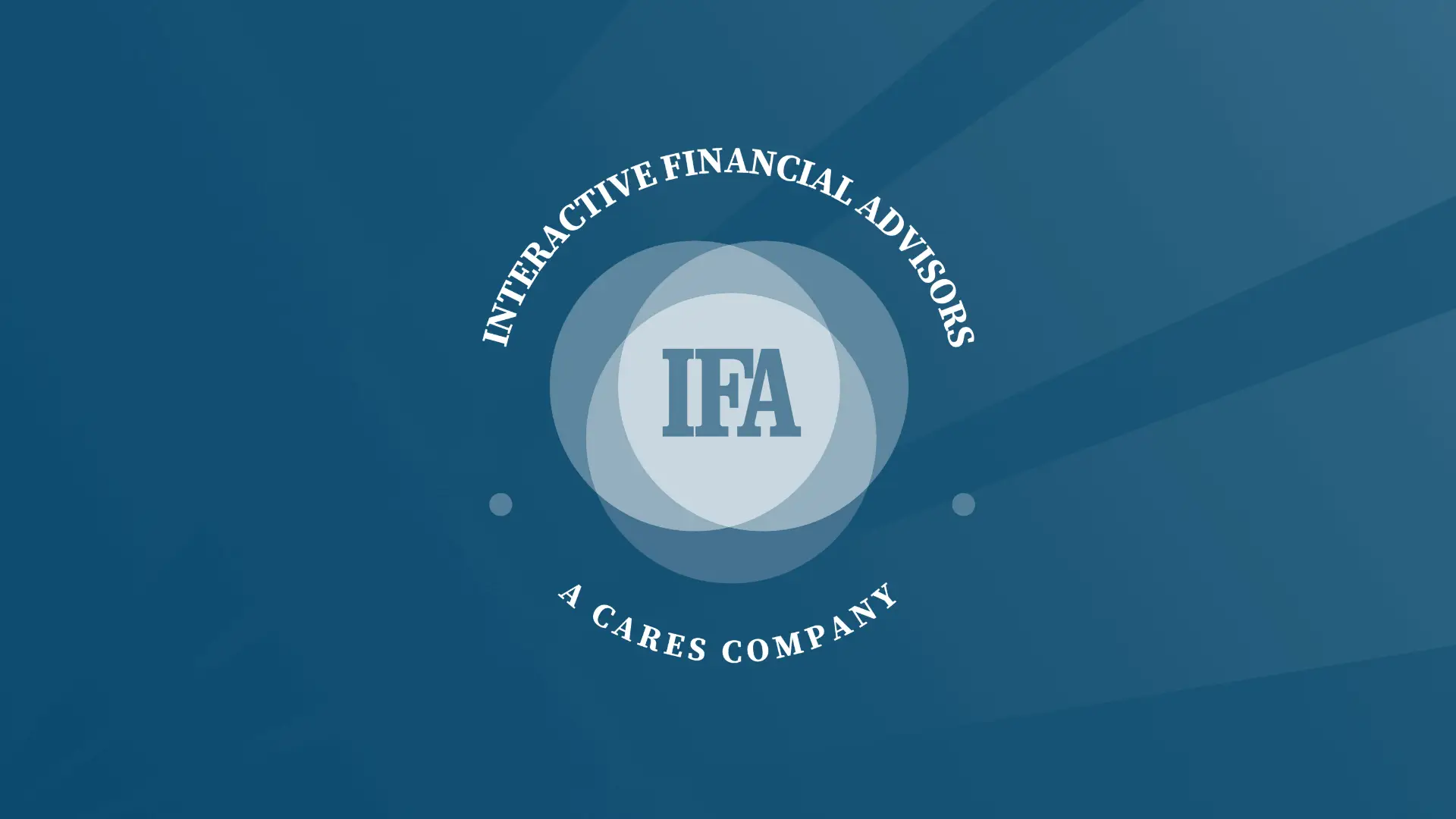In our first edition of FutureVault’s WealthTech Roundtable, we connected with several experts who live at the crossroads of innovation, practice management, and emerging industry trends, in an effort to unpack two key themes.
Personalization and the Digital Client Experience.
These two themes have garnered significant interest across the industry, becoming a major focus for firms and advisors; at least the ones looking to gain a competitive edge now and well into the future.
These two themes are so critical because delivering true value and building meaningful relationships starts and ends with clients and their family members.
Here at FutureVault, it’s why we’re so bullish on Personal Life Management, and why we’ve created the Personal Life Management Vault™.
Here’s what we know to be true; it all starts and ends with your clients. The firms (and advisors) that invest in delivering value by creating personalized experiences and elevating the digital client experience will be the ones that reap benefits for generations to come.
But what exactly is involved in creating personalized experiences and elevating your digital client experiences?
In order to find one, we sought out the expertise of the following experts:
- Teresa Leno (Founder/CEO, Fresh Finance)
- Timothy D. Welsh, CFP® (President, Nexus Strategy, LLC)
- Julie Littlechild (Founder and CEO at Absolute Engagement)
- Bill McGuire (Managing Director, W.M.McGuire, LLC)
- Brian Thorp (Founder and CEO, Wealthtender)
- Corey Keating (Founder: Marketers Company, Corey Keating Marketing)
Below are the four questions we asked each of our guest experts.
- What comes to mind when you think of personalization and why is it so important or relevant for advisors?
- What are the top-producing advisors (and firms) currently doing to win over new and existing clients with respect to personalization and the overall client experience?
- How important is technology in creating personalized experiences and in helping advisors improve the relationships they have with their clients and family members?
- Finally, what are some of the emerging trends you’re witnessing that will impact and influence the strategic decision-making process on how, where, or why firms invest in enhancing the digital client experience?
Below are the answers our experts shared with us.

What comes to mind when you think of personalization and why is it so important or relevant for advisors?
As a former financial advisor and now a FinTech marketer and MarTech software owner, when I hear the word “personalization,” I think of a few different things:
First is the ability to personalize an advisor’s technology- using APIs to build out a platform of tools personalized to their needs.
Second, personalization at the client level with access to their information, documentation, and investment information.
From a MarTech perspective, personalize the marketing and the messaging from the advisor- from branding to what information they share with their clients and prospects and how they share it. Our software enables social sharing and personalized sharing through client-focused newsletters.
Technology can deliver personalization at scale, and advisors need to embrace it! There is no better time than now for advisors to implement technology that provides personalized experiences for their clients.
What are the top-producing advisors (and firms) currently doing to win over new and existing clients with respect to personalization and the overall client experience?
I believe the top advisors have a handle on the personalization and client expectations because they’re utilizing the technologies that deliver. They are more likely to use SaaS platforms they choose versus outdated legacy technologies that often are ‘free’ or provided by their custodian. These advisors know they can scale faster and more efficiently when technology can do the heavy lifting- more time with clients, less time on ‘tasks.’
How important is technology in creating personalized experiences and in helping advisors improve the relationships they have with their clients and family members?
The great wealth transfer has already begun and technology that provides personalized experiences is playing a huge role. If advisors want to continue advisory relationships with the next generation, they will have to utilize technology with personalization features to maintain AUM, it’s that simple.
Finally, what are some of the emerging trends you’re witnessing that will impact and influence the strategic decision-making process on how, where, or why firms invest in enhancing the digital client experience?
I am seeing a lot more firms, namely large BDs, allowing advisors to make their own choices when it comes to certain technologies to make their practices more efficient. I can provide insight into this because my firm not only owns technology, but we have provided marketing services to some of the fastest scaling FInTech firms over the past few years. It’s been great to see how FinTech is constantly evolving and meeting the expectations of advisors, too.
In the financial marketing industry, while there are ‘approved vendors,’ these same firms are allowing advisors to make their own choices too. There is less resistance and more openness because the advisor is ultimately the one developing the relationship and maintaining the AUM and therefore making technology and MarTech decisions that fit their business model.

What comes to mind when you think of personalization and why is it so important or relevant for advisors?
Historically, portfolio management and financial planning have been aggregated at the model portfolio level with basically a handful of options for clients as advisors’ infrastructure limits them from creating bespoke portfolios for each and every client. They simply do not have the technology, expertise, and capacity to provide those, so clients get dropped into a few buckets. That was ok in the past, however, with today’s hyper-personalized apps on their phones, they want more and are demanding more. Look for direct indexing technology to provide personalized, tax-managed, and ESG-focused portfolios to be the answer here, particularly as the asset management industry is acquiring these capabilities en-masse. Advisors will no longer be able to hide behind a 60-40 portfolio and must up their games to stay relevant in this new environment, particularly as the discounters and digital players are mass marketing personalized portfolios, e.g. Schwab is now offering those at $5,000 minimums.
What are the top-producing advisors (and firms) currently doing to win over new and existing clients with respect to personalization and the overall client experience?
Leading firms are taking advantage of the SEC’s new Marketing Rule that allows for advisors to use testimonials, endorsements, and reviews in their communications and promotions. Just like Yelp, Airbnb, and Uber/Lyft have transformed how consumers shop online, advisors can now showcase their clients’ experiences as social proof that they are providing a quality service offering. This will be the way financial advisors start to market themselves – but it is a race – the early adopters will win the lion’s share of new prospects through these methods.
How important is technology in creating personalized experiences and in helping advisors improve the relationships they have with their clients and family members?
As mentioned above, wealth management does not scale, so advisors have not been able to offer truly tailored investment advice, guidance, and portfolio implementation. The answer has to be in back-office technology that enables them to do so, e.g. direct indexing is the first place to start.
Finally, what are some of the emerging trends you’re witnessing that will impact and influence the strategic decision-making process on how, where, or why firms invest in enhancing the digital client experience?
Anything firms can do to bring capacity, scale and efficiencies into their operations will be critical for prioritization. Not only to generate additional income today, but also for their future business value tomorrow.

What comes to mind when you think of personalization and why is it so important or relevant for advisors?
I believe that personalization is a critical client experience trend although it means different things to different people. We can, for example, personalize the service plan so that we are delivering the number of reviews in the right format (in-person, virtual) based on the preferences of the clients. Perhaps a more powerful application of personalization is in client communication (the conversation we have and the content we share) because it provides an opportunity to demonstrate real leadership.
The shift we have witnessed is from ‘generic communications’ to ‘segmented communications’ (e.g., business owners or corporate executives or retirees) to ‘client-driven communications’ (e.g., connected to the individual needs of a client). The first two require you to assume what clients and prospects care about but the latter is driven by direct input from clients.
What are the top-producing advisors (and firms) currently doing to win over new and existing clients with respect to personalization and the overall client experience?
The most progressive firms are capturing relevant data from their clients or using existing demographic data to share more personalized communications. Rather than providing generic communications, they are sharing content that reflects what is most important to clients, their specific concerns or a specific event in their lives.
Many firms have started to segment communications (e.g., business owners are more likely to care about this topic) but increasingly we’re focusing on how we do this by the client. For example, we might capture real-time input about what Mary Smith is concerned about and trigger a meeting or an article on the topic. The future of personalization, in my mind, is tied to the ability to respond in real-time to the needs of clients.
How important is technology in creating personalized experiences and in helping advisors improve the relationships they have with their clients and family members?
Technology is absolutely critical in facilitating a personalized experience. As we think about driving the experience, conversations, and communications down to the client level (or even delivering on a segmented basis) we need a way to capture, analyze and respond to client needs. That is a complex process but highlights one of the most interesting developments in that space and that is the ability to use technology to support an otherwise very human process.
Finally, what are some of the emerging trends you’re witnessing that will impact and influence the strategic decision-making process on how, where, or why firms invest in enhancing the digital client experience?
The trends our research is uncovering are really trends connected to client mindset. How are they feeling? What do they need? What are they concerned about? The data shows how fluid these things are and that was only exacerbated over the last several years. As a result, we are seeing – and actively participating in – the emergence of engagement technologies that will allow advisors to be more responsive to the real-time needs of both prospects and clients. And we are seeing more firms who are willing to co-create the experience with their clients to ensure they are delivering what is most important.

What comes to mind when you think of personalization and why is it so important or relevant for advisors?
It starts with a clear message. This is especially important for RIA firms and advisors because what they think is unique, like being independent or a fiduciary, is not and means little to most people receiving their communication. Working with a professional writer, with industry experience, can often be the best first step toward effective communication.
What are the top-producing advisors (and firms) currently doing to win over new and existing clients with respect to personalization and the overall client experience?
Creating a dialogue that speaks to a specific topic or need and making the communication a two-way collaborative process. Understanding the right tactic to best achieve your goals is important too. For example, podcasts can be great for establishing ‘thought leadership’ by allowing easy access and able to listen anywhere to learn more about you and your expertise in your field. While webinars can allow you to create ‘lead generation’ through engagement; polling, surveys, Q&A, and screen-sharing interaction.
How important is technology in creating personalized experiences and in helping advisors improve the relationships they have with their clients and family members?
Technology and the data and reporting it provides allow you to learn and tailor communication over time. View all marketing and communications initiatives as “works in progress”—and because they are repeatable, you can make small adjustments on what worked, what didn’t, and how to do it better, which can go a long way in improving the personalized experience.
Finally, what are some of the emerging trends you’re witnessing that will impact and influence the strategic decision-making process on how, where, or why firms invest in enhancing the digital client experience?
Technology is only as good as the people using it. When deciding on a new marketing technology initiative (for example, updating the firm’s website), assign a staff member to become the project leader to become familiar with the features and benefits of the different website creation firms, content management systems (CMS), and hosting services.

What comes to mind when you think of personalization and why is it so important or relevant for advisors?
Without a doubt, I believe the most significant driver of personalization in the industry is the acceleration of advisors choosing a clearly defined niche or specific areas of specialization that become the focus of their practice. In a post-COVID world, advisors and consumers alike realize they can work together no matter where either live. This means consumers hiring a financial advisor will increasingly determine who they want to work with based upon factors other than how close the advisor’s office is to their home. As more consumers learn about advisors who specialize in areas relevant to their unique needs, these advisors will experience faster growth and a powerful network effect as their clients become influential advocates with prospects they’re seeking to attract.
What are the top-producing advisors (and firms) currently doing to win over new and existing clients with respect to personalization and the overall client experience?
Continuing on the theme of building authority as a specialist, top advisors are winning over new clients through efforts that elevate their voice and online reputation in their areas of specialization. For example, David DeWitt, a financial advisor in Wayne, Pennsylvania, recently focused his practice on serving clients, like him, who have been diagnosed with ADHD (Attention Deficit Hyperactivity Disorder). David launched the ADHD Money Talk Podcast to reinforce his authority as a subject matter expert and connect more personally with his clients and prospects. Another example includes the team at Abundo Wealth and the travel advice services they offer clients as a natural extension of their own wanderlust. Just as traditional advisors who focus on a local market benefit by being active in their community, advisors specializing in a niche are finding creative ways to be visible among their clients and ideal prospects, often through activities they conduct online.
How important is technology in creating personalized experiences and in helping advisors improve the relationships they have with their clients and family members?
With more advisors working with clients across the country or even across borders, technology plays an integral role in delivering a personalized experience, whether through Zoom calls, electronic signatures, and secure storage and organization of important documents. For technology to truly enhance the advisor-client relationship, it’s important the solutions chosen are easy to use, well-resourced, and proven to reduce the likelihood of a bad experience, especially in critical areas like information security.
Finally, what are some of the emerging trends you’re witnessing that will impact and influence the strategic decision-making process on how, where, or why firms invest in enhancing the digital client experience?
Top advisors and firms no longer evaluate individual applications and technology services through a narrow lens and instead conduct due diligence to understand how these tools integrate with their tech stack. How well do applications talk to one another? How robust and secure are the methods for connecting applications? Are there multiple solutions offered under the umbrella of a single vendor that increases the likelihood of interoperability today and for the foreseeable future? Questions like these are becoming the norm when evaluating new technology tools and services.

What comes to mind when you think of personalization and why is it so important or relevant for advisors?
When I hear personalization, I hear “brand.” The finance industry is a copycat league and the only chance most of us have at breaking through the overwhelming amount of noise is through the differentiation of brand. I’m not talking about corporate brand; I’m talking about our individual brands. What makes you, me, and each of us different than the other who’s representing the same product and/or service just from another company? Sure, maybe a variation of bells & whistles, but at the end of the day isn’t what most of us offering the same?
The differences are found in our personalities, our brand, who we are, what we represent, and how we deliver it.
What are the top-producing advisors (and firms) currently doing to win over new and existing clients with respect to personalization and the overall client experience?
The FAs and firms that are gobbling up and will continue to gobble up market share are creating an increasing amount of consistent consumable content that tells their audience and current client base: Who they are, what they do, why they do it, how, and answering all of the common FAQ questions that the audience wants and needs to ask before they have a chance to ask.
How important is technology in creating personalized experiences and in helping advisors improve the relationships they have with their clients and family members?
Technology is important and necessary. However, I believe many have actually placed too much emphasis and resources on their tech which can easily create more of a headache for the business operators along with an increased distance from the end user.
Finally, what are some of the emerging trends you’re witnessing that will impact and influence the strategic decision-making process on how, where, or why firms invest in enhancing the digital client experience?
Regardless of what side of the business we’re discussing, wholesale and/or advisor, I would be head down focused on creating consumable digital content to be distributed uniquely on LinkedIn, YouTube, and email.
Websites, gates, SEO & SEM, and automated email campaigns have been over-emphasized and relied on for far too long and have allowed for a massive void in every firm’s ability to tell their unique story through their unique people on the channels and platforms that we all as humans consume the content.
“Corey, what would you do if brought in to help us gain more attention, deeper relationships, and ultimately more business for our firm?”
Corey: I would simply create a new, siloed arm within the marketing department called the Consumable Content Department and we would start by highlighting and creating content around the firms’ most influential personalities. The team would be built from the outside in, meaning not bringing people over from the standard corporate marketing group, but rather hiring new outside employees: Creative director, videographer(s)/photographer(s), post-production editors, graphic designers, and writers. This team would execute and distribute content for LinkedIn, YouTube, some email marketing, and some featured on the firm’s website.
The good news: There’s still a ridiculous opportunity for a handful of firms and advisors to take advantage and capitalize on this.
The bad news: With every passing day the window and our opportunity to get this content in front of our intended audience close a little more as the organic reach of these platforms shrinks.





